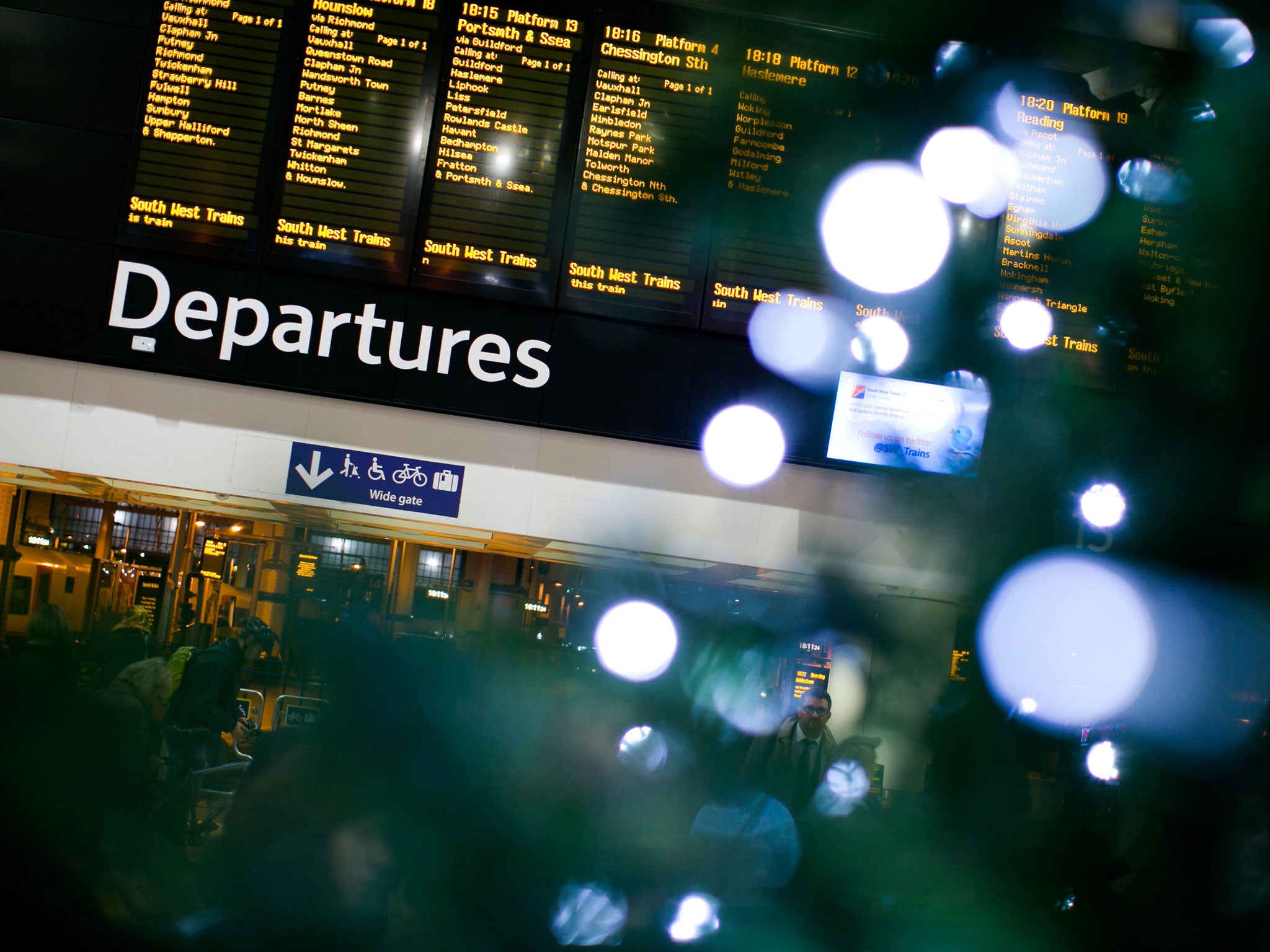Rail fares for commuters set to rise by up to 5%

Your support helps us to tell the story
From reproductive rights to climate change to Big Tech, The Independent is on the ground when the story is developing. Whether it's investigating the financials of Elon Musk's pro-Trump PAC or producing our latest documentary, 'The A Word', which shines a light on the American women fighting for reproductive rights, we know how important it is to parse out the facts from the messaging.
At such a critical moment in US history, we need reporters on the ground. Your donation allows us to keep sending journalists to speak to both sides of the story.
The Independent is trusted by Americans across the entire political spectrum. And unlike many other quality news outlets, we choose not to lock Americans out of our reporting and analysis with paywalls. We believe quality journalism should be available to everyone, paid for by those who can afford it.
Your support makes all the difference.On a day when rail services across the country are likely to be severely disrupted, the fare increases that passengers face from 2 January 2014 have emerged.
The tradition of price rises taking effect from the first working day in the New Year is to be maintained, but the new fares have only now been loaded into the rail industry systems.
Season tickets, off-peak fares and "Anytime" prices are regulated by the government. Normally all the specific fares would have been known much earlier in December, but the Chancellor's autumn statement announced that the "July's RPI-plus-1" formula would be reduced to the RPI figure along, which was 3.1 per cent. Last month's RPI was half of one per cent lower, at 2.6 per cent.
Train companies can use a 2 per cent "flex" regulation that allows some regulated fares to rise by as much as 5.1 per cent so long as the overall average does not exceed 3.1 per cent.
Specific prices checked by The Independent suggest that some fare rises have exceeded the cap. Between Reading and London, a weekly season ticket has increased from £99.40 to £105.20, an increase of 5.8 per cent.
A London-Manchester Anytime single rises from £154 to £160.50 - a rise of 4.2 per cent. Between Cardiff and Swansea, an Anytime single will cost £10.30 from the New Year, an increase of 4 per cent.
A week's season ticket between Edinburgh and Glasgow increases by £2.70 to £90.50, up 3.1 per cent. The UK's most expensive return ticket, a First Class Anytime from Penzance to Thurso, also goes up by 3.1 per cent from £1,000 to £1,031.
The Campaign for Better Transport chief executive, Stephen Joseph, said he was "very disappointed" that the RPI is being used to calculate rail-fare increases rather than the lower CPI inflation figure as used to set pensions and other benefits.
Mr Joseph said: "Passengers will see season tickets going up three times faster than their wages. The Government needs to do more to stop the squeeze on commuters and avoid pricing people off the railways. We need a permanent end to inflation-busting fare rises calculated using an out-of-date formula."
Bob Crow, general secretary of the RMT transport union, said: "Passengers will continue to pay the highest fares in Europe to travel on creaking, overcrowded trains."
A Department for Transport spokeswoman said: "The Government understands concerns rail passengers have about the costs of fares and the impact they have on household budgets.
"That is why next year, for the first time in a decade, regulated fares will not rise on average by more than the rate of inflation, offering relief for families and the hardworking people."
Join our commenting forum
Join thought-provoking conversations, follow other Independent readers and see their replies
Comments